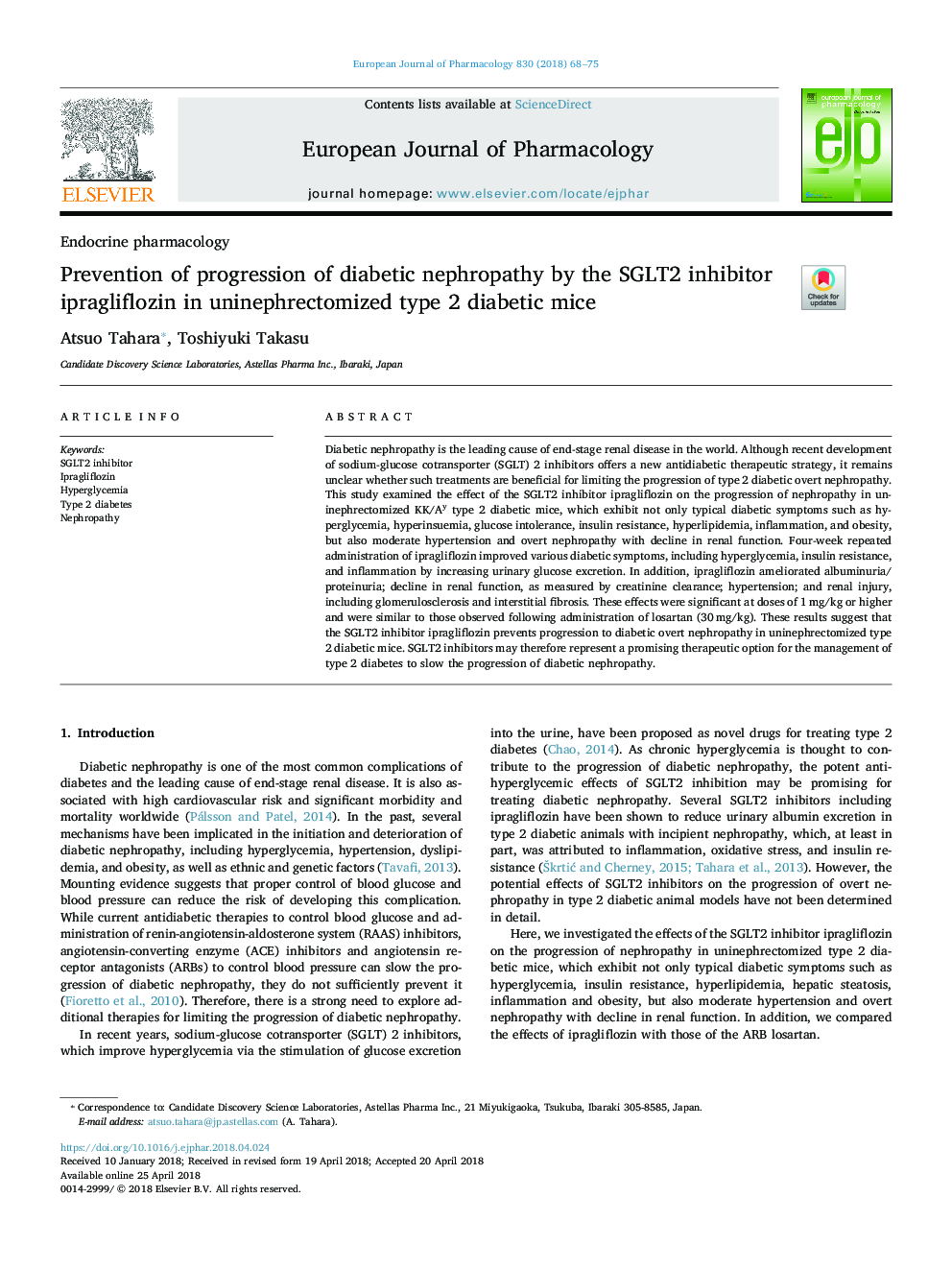| Article ID | Journal | Published Year | Pages | File Type |
|---|---|---|---|---|
| 8529056 | European Journal of Pharmacology | 2018 | 8 Pages |
Abstract
Diabetic nephropathy is the leading cause of end-stage renal disease in the world. Although recent development of sodium-glucose cotransporter (SGLT) 2 inhibitors offers a new antidiabetic therapeutic strategy, it remains unclear whether such treatments are beneficial for limiting the progression of type 2 diabetic overt nephropathy. This study examined the effect of the SGLT2 inhibitor ipragliflozin on the progression of nephropathy in uninephrectomized KK/Ay type 2 diabetic mice, which exhibit not only typical diabetic symptoms such as hyperglycemia, hyperinsuemia, glucose intolerance, insulin resistance, hyperlipidemia, inflammation, and obesity, but also moderate hypertension and overt nephropathy with decline in renal function. Four-week repeated administration of ipragliflozin improved various diabetic symptoms, including hyperglycemia, insulin resistance, and inflammation by increasing urinary glucose excretion. In addition, ipragliflozin ameliorated albuminuria/proteinuria; decline in renal function, as measured by creatinine clearance; hypertension; and renal injury, including glomerulosclerosis and interstitial fibrosis. These effects were significant at doses of 1â¯mg/kg or higher and were similar to those observed following administration of losartan (30â¯mg/kg). These results suggest that the SGLT2 inhibitor ipragliflozin prevents progression to diabetic overt nephropathy in uninephrectomized type 2 diabetic mice. SGLT2 inhibitors may therefore represent a promising therapeutic option for the management of type 2 diabetes to slow the progression of diabetic nephropathy.
Related Topics
Life Sciences
Neuroscience
Cellular and Molecular Neuroscience
Authors
Atsuo Tahara, Toshiyuki Takasu,
